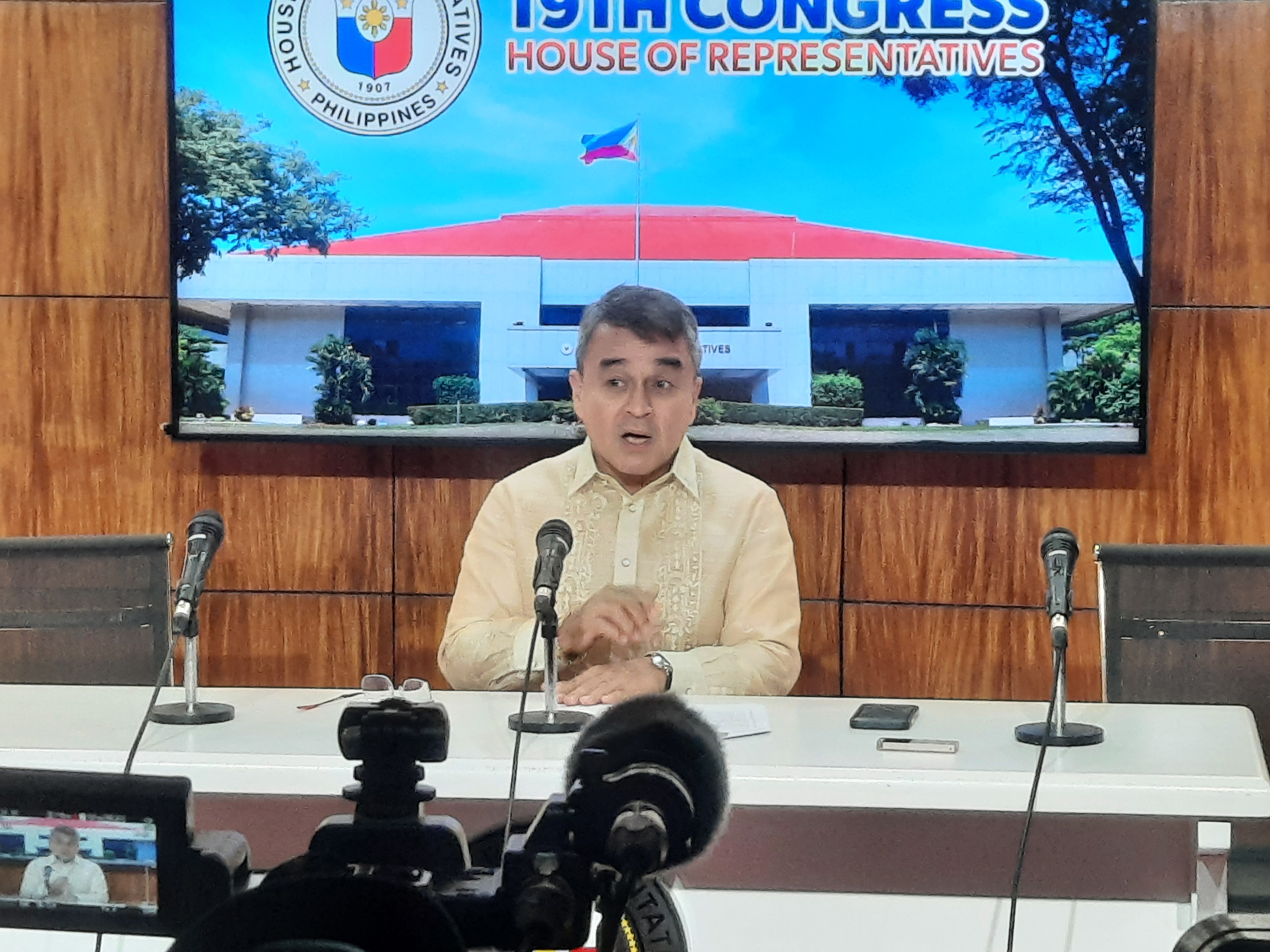Special Investor's Resident Visa program must be tweaked to halt entry of foreign crime rings--Barbers
At A Glance
- Surigao del Norte 2nd district Rep. Robert Ace Barbers says there is a need to update the antiquated Special Investor's Resident Visa (SIRV) program, which is now being used as a "ticket" by some foreign drug syndicates, money launderers and other criminal elements that want to set up shop in the Philippines.
 Surigao del Norte 2nd district Rep. Robert Ace Barbers (Ellson Quismorio/ MANILABULLETIN)
Surigao del Norte 2nd district Rep. Robert Ace Barbers (Ellson Quismorio/ MANILABULLETIN)
There is a need to update the antiquated Special Investor’s Resident Visa (SIRV) program, which is now being used as a “ticket” by some foreign drug syndicates, money launderers and other criminal elements that want to set up shop in the Philippines.
Thus, said Surigao del Norte 2nd district Rep. Robert Ace Barbers, chairman of the House Committee on Dangerous Drugs. He believes the country’s SIRV program that's being implemented by the Board of Investments (BOI) is being taken advantage of by unscrupulous foreign individuals
He said that pursuant to Book V of the Omnibus Investment Code (Executive Order No. 226, as amended), the SIRV program requires investors to remit at least US$75,000 into the country and invest in viable economic activities.
“Sa halagang P4.8 million (P58.51 to US$1), ang isang member ng isang criminal syndicate ay maaari nang pumasok, manatili at gawin ang kanilang illegal na gawain sa ating bansa gamit ang SIRV program as cover,” Barbers said.
(For just P4.8 million, a member of a criminal syndicate can enter and carry out their illegal activities in the country while using the SIRV program as cover.)
“At sa mga banyaga, particular na ang mga Chinese drug syndicates at money launderers, ang halaga na P4.8 million ay barya na lang sa kasalukuyang panahon kumpara sa kikitain nila sa kanilang illegal na gawain,” he noted.
(And to foreigners, particularly to Chinese drug syndicates and money launderers, P4.8 million is just pocket change now compared to what they can earn from their illegal activities.)
Barbers says the SIRV program is conveniently being used by many Chinese nationals manning retail stores in Metro Manila and other parts of the country, where they peddle cheap, smuggled goods from China.
“Ito ang mga reklamong nakarating sa atin mula sa mga kababayan nating Filipino-Chinese o Tsinoy na engaged sa local retail businesses. Kundi lugi ay nagsarado na ang marami sa kanila. Hindi na maituturing na investors ang mga Chinese nationals na ito. Dahil nag-dagsaan na sila, mga Tsinoy na ang kanilang ka-kumpetensya sa retail trade,” he said.
(This is the complaint of our Filipino-Chinese countrymen or Tsinoys who are engaged in the local retail business. They are losing money and closing shop. These Chinese nationals can no longer be called investors. Because of their influx, they are now competing with Tsinoys on retail trade.)
The House of Representatives is currently investigating the influx of Chinese nationals working in illegal Philippine Offshore Gaming Operators (POGO) firms; involvement in drugs smuggling; acquiring Filipino citizenship using spurious documents; money laundering, fraud, kidnap-for-ransom, and other criminal activities.
One of these Chinese nationals, Barbers said, was identified as Willie Ong. He is believed as the brains behind the importation of 530 kilos of "shabu" worth P3.6 billion stashed in his warehouse in Mexico, Pampanga in September last year.
Ong, who uses forged Filipino passports and other documents, established together with his Chinese cohorts, the Empire 999 real estate firm, has anomalously been able to buy 320 titled lots in various parts of Central Luzon and Metro Manila.
The government, through the Office of the Solicitor General (OSG) and the Land Registration Authority, are out to conduct forfeiture proceedings against Ong’s acquired real estate properties worth several billion pesos.